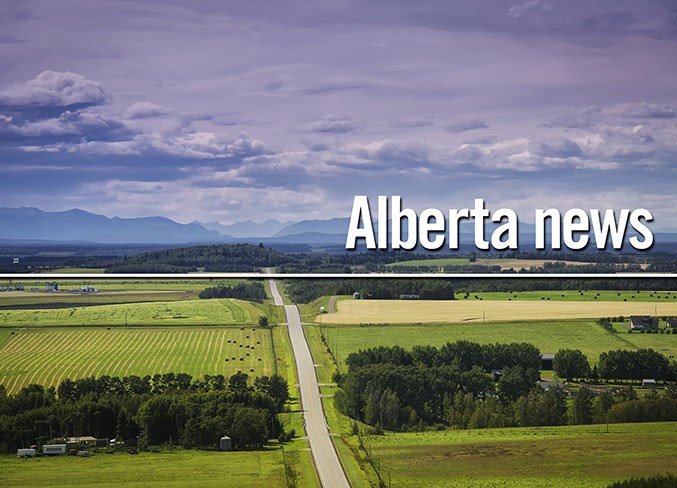Improving rural internet, recovering from COVID-19 and attracting investment are all priorities for Alberta’s new associate minister, who is tasked with focusing on rural economies.
Associate minister of rural economic development, Nate Horner, who also serves as the MLA for Drumheller-Stettler, was appointed to the new ministry position earlier this month during a provincial cabinet shuffle and said he just wants to bring a focus to rural Alberta and issues facing those regions.
“(I want to) just ensure that we're really responsive to all rural issues in all these communities, whether it's health or education, and get some wins for rural Alberta,” Horner said.
Rural Alberta was hit hard by both COVID-19 and the struggles in the resource sector, Horner said, and he wants to help communities get back on their feet.
The cancellations of the pipelines had a big impact on local economies, Horner said, and in his own riding he was able to see the impact construction had in the communities.
“I drove down those roads and saw the pipe yards for 10 years of rusted pipes sitting there while they were waiting and on hold,” Horner said.
And then COVID-19 came and delivered a huge blow.
“It was my feeling during COVID-19 and my fear that that one of the legacies of COVID-19 is that we would see is that it was disproportionately hard on rural Alberta,” Horner said.
There are a lot of mom-and-pop businesses that already had a small customer base that were deeply impacted by the pandemic.
“It'll take a while for the dust to settle, but I'm concerned,” Horner said.
But while there have been challenges in the less populated places in the province, Horner said there are many reasons to be optimistic.
Hydrogen opportunities, film, and the petrochemical industry will be encouraging investment in every corner of the province, said Horner.
“So much good is coming. We just need more focus on rural Alberta and make sure that those opportunities aren't missed.”
The number one issue the associate minister wants to tackle is improving the Internet outside of the province's large cities, which is a constant challenge for rural residents.
When Horner was being sworn in, he said Alberta Premier Jason Kenney immediately mentioned the importance of rural Internet and Paul McLauchlin, president of the Rural Municipalities of Alberta, told Horner it was their number one priority.
Providing Internet across rural and remote Canada has fallen under the purview of the federal government and private businesses, but Horner said the province will also be tackling the issue.
“I'm hoping that what we'll be able to do will definitely involve the federal government, and to get it to the scope that we need to really make a difference across the province, I think it'll need to be provincial and federal effort,” Horner said.
The associate minister will also work with the ministry of agriculture. Horner, who is a cattle producer, said he hopes to be a helpful resource.
After the heat wave that covered Alberta over the past few weeks, crops and agriculture yields are expected to be “pretty bad” because so much damage was done so early in the season.
“You don't expect to see (that heat) in June, you know, in my country to see it in August or late July. We did have a few rains, but close to 40-degree heat with a wind for multiple weeks, it's pretty tough,” Horner said.
As a result of the financial pressure on rural communities, some hamlets have been dissolving into the larger rural municipalities, and Horner said those amalgamations are often inevitable.
Larger counties often work so closely with small communities and are very collaborative and by the time some municipalities dissolve, it is a pretty smooth and easy process.
“At the end of the day we're going to have to, I believe, quit looking at things with such a narrow lens and try to see the bigger picture – less us versus them – and just find ways to be sustainable,” Horner said.
“I think anytime you can be more efficient with how you're governed it's probably a good thing.”




